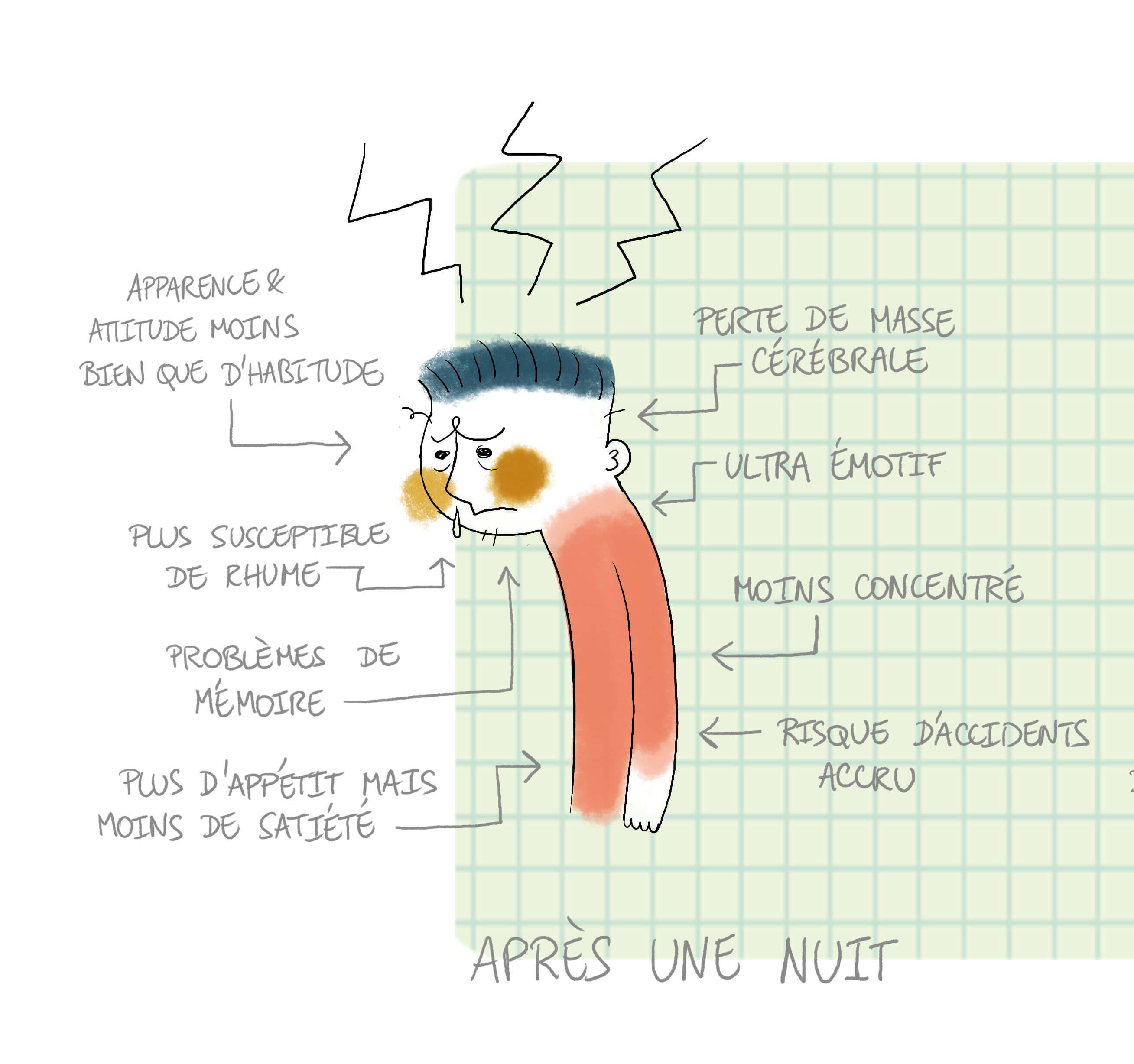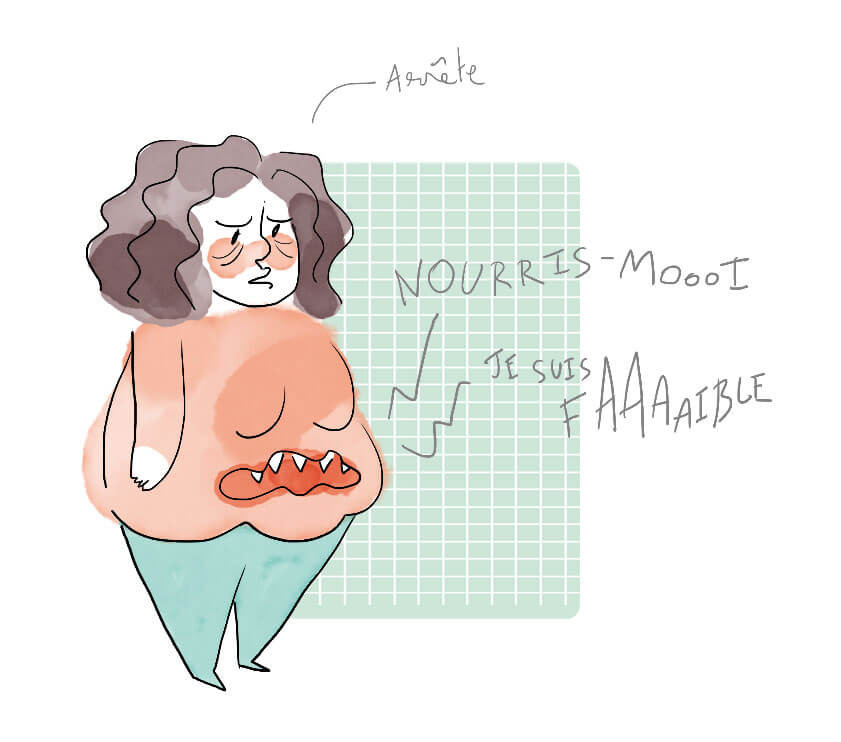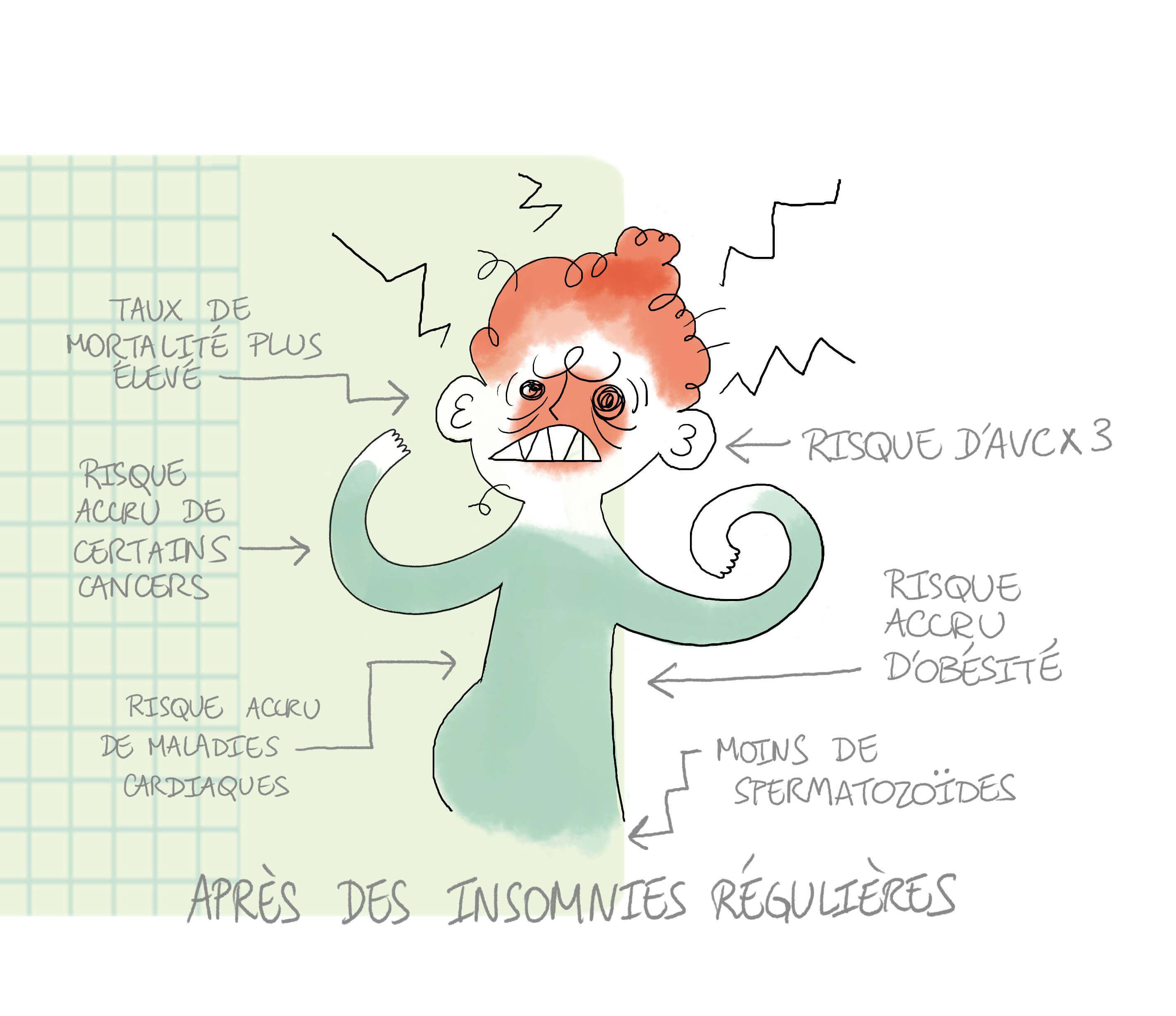5 positions to sleep well
How to fall asleep ? Nothing better than being in the right position, at home in your cozy room. No more turning around in all directions: we will tell you which way to go for maximum well-being. First, be aware that there is no "ultimate" position that will allow you to sleep as well as possible - each position has advantages and disadvantages.
Positions for sleeping To Avoid Neck Pain
On the Stomach
On your stomach, your spine widens because it is not in its natural position. Your muscles and joints end up carrying the majority of your weight, and you have to turn your head on the pillow to be able to breathe. It can hurt your neck , cause your vertebrae to spin , or even hurt your head or jaw. If you sleep too often on your stomach, you can even develop bruxism (a grinding of your teeth during sleep)… not to mention that the pressure on your rib cage prevents you from breathing . To avoid neck pain, read this comprehensive guide on best mattress for shoulder and neck pain.
Osteopaths and physiotherapists generally agree that this is the worst position, which can cause neck and lower back pain . If you sleep on your stomach anyway, prefer a flat pillow and firm mattress to avoid pressurizing your neck and shoulders and a firm mattress ... and turn around often!

In fetal position
Curled up on yourself under your duvet, you look more like a hibernating pajama ball than a human being. But are you comfortable?
First, you prevent your rib cage from swelling and you breathe less well . Your spine and neck are bent, your knees bent for hours, and it can cause arthritis, pain and numbness.
If you sleep in this position, remember to put a pillow between your legs and bend one leg while stretching the other to relieve the tension you put on your joints and pelvis. For your head, prefer a thick pillow , it will support your spine and fill the empty space between your shoulder and your neck.
On the side
In this position, you avoid gastric reflux, reduce snoring, and promote blood circulation. However, since you know you can sleep on your side, we know that an existential question is bothering you: "Which side ?!" "
In reality, just like you have to alternate positions during the night (which is done automatically, if all goes well) you have to alternate between the two sides to distribute the pressure on your body as much as possible. According to a study from the University of California, San Francisco, men who sleep on the same side suffer more from kidney stones . 75% of people in the study had recurring stone problems exclusively on the side on which they slept
Avoid sleeping with your arms higher than your shoulders (for example, by putting them under the pillow). It constricts your nerves and your veins. Your arms may be numb, and the weight is hanging over your shoulders, making it more difficult to get up.
On the back
Finally, sleeping on your back is technically the best position to sleep. It is not recommended if you tend to snore or have sleep apnea problems, however it does not stress your skin by crushing it on the pillow or pulling it down, reduces pain neck and back by matching the shape of your spine , and reduces stomach reflux.
Conclusion: the more you can sleep like a Playmobile, the better!
Positions for sleeping well for two
Women's magazines and American series will sell you the spoon positions, the delicate and languid embraces where one coats in the crook of the neck of the other and where no one ever has a sore arm.
But the numbers show it, you are not fooled. For half of French couples, the best position to sleep is back to back . According to a survey by BVA Healthcare, seniors in particular swear by that, 59% enthusiastic (after a life spent together, we have to believe that we like to have room). Young couples (that is to say those under 34) prefer for just under half to sleep in each other's arms, face to face.
No mystery, the best positions for sleeping together are the same as those where you sleep alone - except that you are accompanied! ;)
That being said, sleeping positions do not have a very serious impact on your body . If you have a preexisting condition or are pregnant , there are precautions to take - but you're unlikely to suffer from the plethora of ailments described on this page simultaneously.
Just know how to alternate positions and have bedding appropriate to your body type!
Lack of sleep
Sleeping well has its benefits, of course (the most noticeable being staying awake during the day) - but did you know that sleeping too little has very harmful consequences? Fortunately, Dodow teaches you how to fall asleep and helps you save time. A little reminder on the main detractors of lack of sleep and their effects, in case you are inclined to get too much sleepless nights.

Sleep better to lose weight better
When you sleep less, your body becomes a fat production and storage plant of which you are the first victim. Indeed, a study by the National Institute of Sleep and Vigilance reveals that little sleepers are more at risk than big ones of becoming obese (by 50% for men and 34% for women). Quickly:
- Your body decreases its production of leptin
As a result, you may not even realize it, but you take larger portions and have a greater appetite for fatty, sugary food and snacks at any time (your body is aware of its weakness and tries by all means to recover forces).
- Your metabolism is disturbed
It tolerates glucose less well , which puts you at risk for type 2 diabetes. In the long term, if you sleep less than 6:30 a night, this tolerance can go as far as falling by 40%.
- Your body increases cortisol levels
It weakens the immune system and can cause high blood pressure, among other ailments.
Obesity is all the more dangerous as it sets in motion a vicious cycle of poor sleep : air circulates less well in your throat and your lungs because of excess fat, which can cause obstructive sleep apnea and micro-arousals due to self-asphyxiation.

The jetlag
If you travel far often, the jetlag is a long-time friend that you may have tamed by force.
Also known as circadian arrhythmia , this unpleasant syndrome occurs when you travel to another time zone and you upset your biological clock - 3 out of 4 travelers say they suffer from jetlag. Flying north or south has little impact (the time does not change much), but trips become particularly trying when you travel from East to West ... because they are longer!
From east to west, your plane goes against the wind (the jet stream air current) and the Earth's rotation. Living in France, it is not just an impression if you went to China and it seemed shorter than going to New York.
Reduced productivity and vigilance
When you have slept badly (or worse, not at all), the first thing you notice is that you are completely knocked out After a cup or two of coffee, you may be under the illusion that everything is fine and that you can go about your business: hairdresser, kindergarten bus driver, professional chainsaw, transporter of the nuclear code case ...

Be careful, however, to pretend that nothing was wrong, because everything is going badly, very badly, but you do not even realize it given the state in which you are:
- You are more susceptible to errors and accidents
According to the National Sleep Foundation , less than 6 hours of sleep per night you triple your risk of accident while driving. And then you’re just awkward in general, and that’s not good for your white shirt at soup time.
- You are less beautiful and pleasant
A study by the SLEEP newspaper showed that little sleepers felt sadder and were considered less attractive. Your emotional centers of the brain become 60% more reactive , and you take everything in the first degree (lo and behold, I told you that you were less beautiful and pleasant than usual and you get excited like a louse, calm down, go do a siesta).
- You are potentially less intelligent
Lack of sleep is also synonymous with loss of brain mass . It is indeed a little worrying. One night of poor sleep is enough to spot molecules in the blood that are present to repair brain damage, says the newspaper SLEEP.
- You don't remember anything
During your deep slow sleep (a phase of your sleep cycle), you consolidate your memory by recording the gains of the day. If you override ... well you don't record anything at all. In addition, you are so tired that your concentration is in the trunk.

Symptoms of poor sleep
Sleeping poorly makes you more susceptible to all kinds of illnesses, but some can make you jump to the ceiling.
- Your risk of stroke is multiplied by 4
Sleepers have twice as much calcium in their blood as normal. More calcium means more possibilities for your arteries to clog. Stroke and infarction are waiting for you ...
- More at risk for cancers
You have a more than 50% chance of developing colorectal adenoma (a tumor that can become malignant in the colon), breast cancer, and there is also a high general prevalence of cancer in people who have sleep apnea.
- Gastrointestinal disorders, viral infections, headache ...
Your immune system goes down and you find yourself catching all the dirt that goes by.